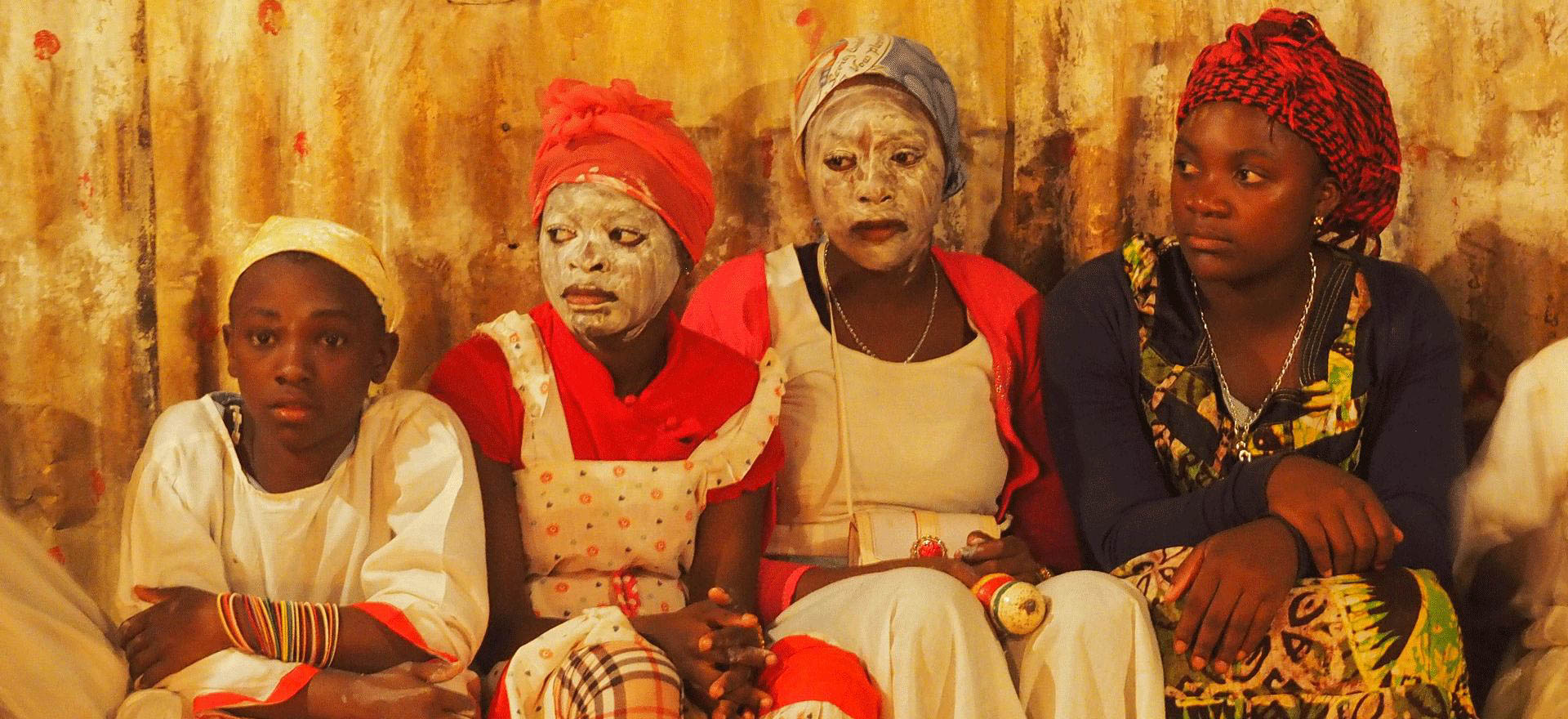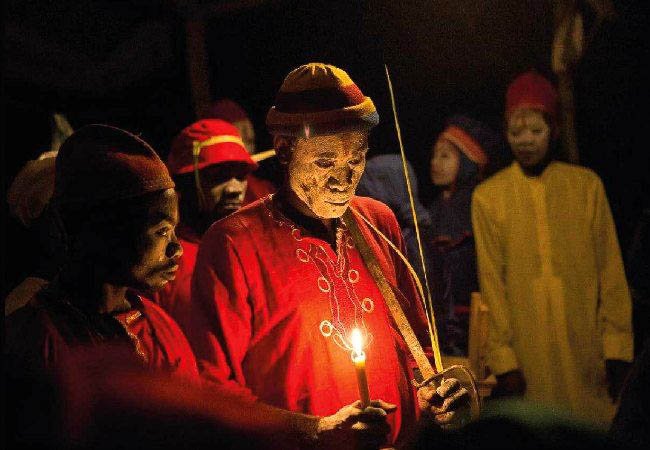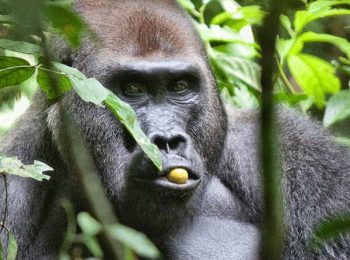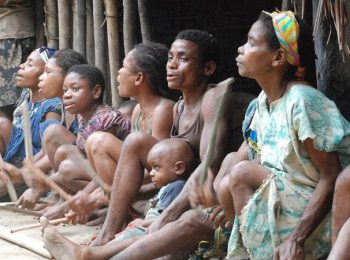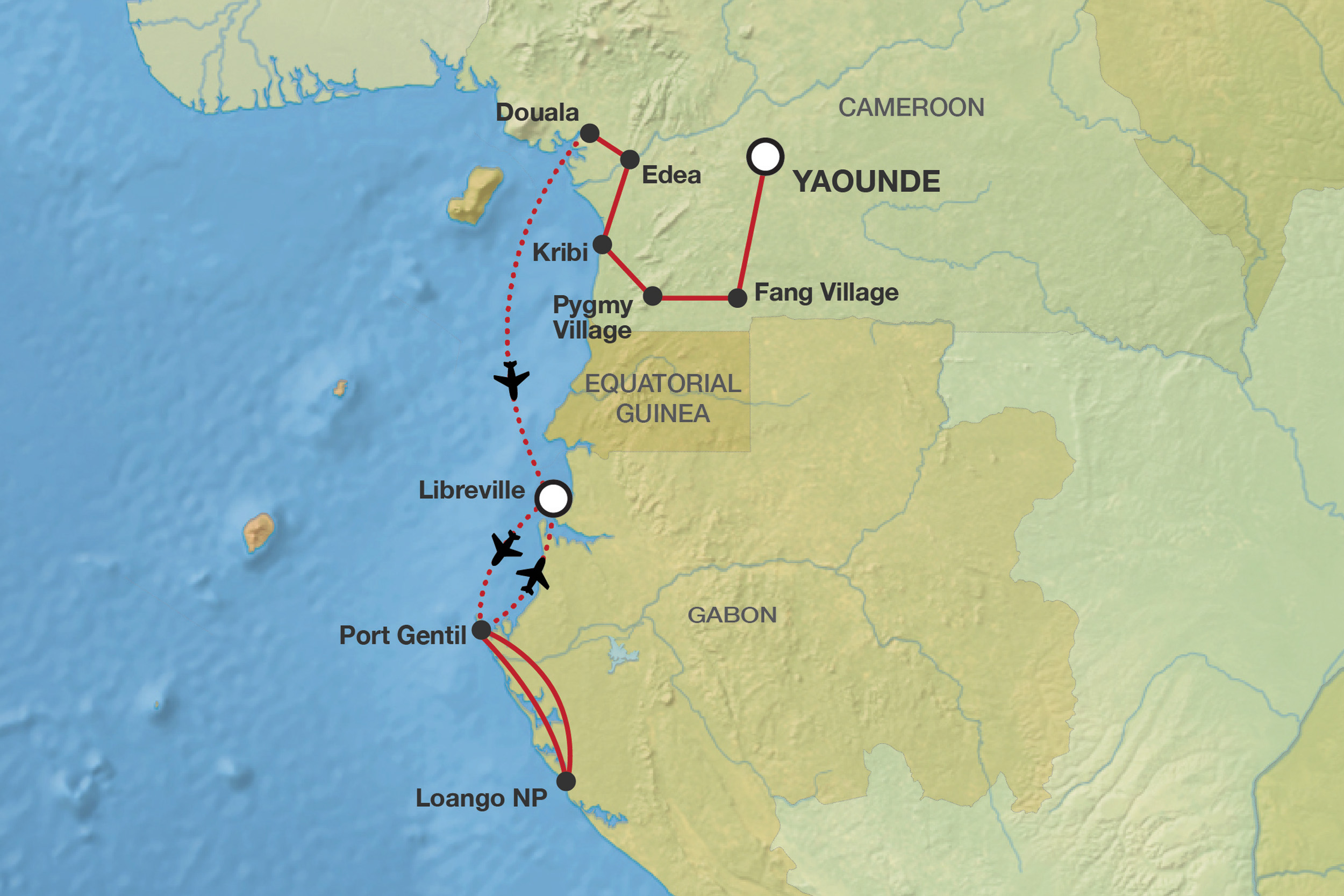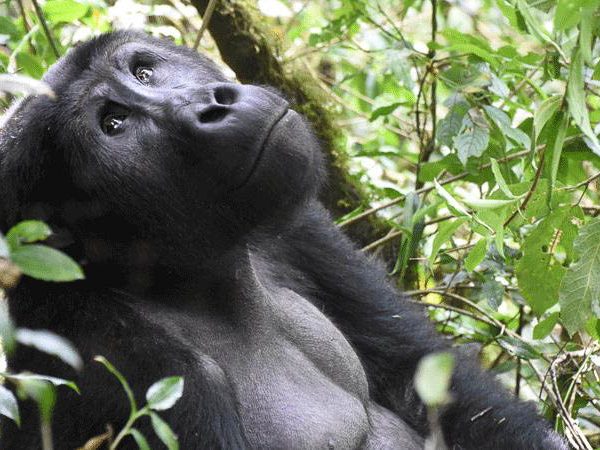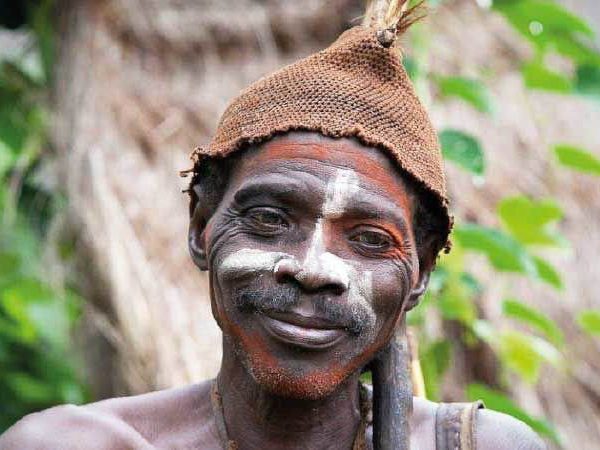Visas
Most travellers will require a visa to enter Cameroon and Gabon.
It is now possible to apply for the Cameroon visa online here: evisacam.cm.
You may need an invitation letter in order to obtain this – we can provide this for you.
The Gabon visa application is now online but has been known to present problems and so we strongly recommend that our local team apply on your behalf.
Our local team can arrange an entry authorisation in advance for you, which will enable you to obtain the visa when you arrive at the airport. The cost of this processing service, payable in advance, is £85. The cost of the visa itself, payable on arrival at the airport in Gabon, is approximately £83.
If you would like us to arrange this for you, please let us know at least two months before travel. We will need a copy of your passport, a passport photograph with white background, return airline tickets, and details of your profession.
Health and vaccinations
We are not medically qualified and so we recommend that you speak to your doctor or nearest health professional for advice concerning recommended vaccinations. For more advice on vaccinations, you can also visit https://travelhealthpro.org.uk/countries.
A Yellow Fever vaccination certificate is required for entry to both countries and you must bring this with you.
Please note that in Gabon especially, there can be a number of checkpoints and at some of these they will ask to see your vaccination certificate. To avoid potential problems, we strongly recommend that you ask your GP or travel health clinic to include details of all current vaccinations on your Yellow Fever vaccination booklet. Although other vaccinations are not required in order to enter these countries, local officials can often cause problems should you have no proof of vaccinations – this is especially pertinent to the polio vaccination.
If you have any physical limitations that might impact your ability to participate in the planned tour activities, it’s essential that you make us aware as soon as possible so that we can discuss this with you.
Insurance
It is a condition of joining our tours that you have suitable travel insurance in place, and we cannot accept travellers without insurance. All policies differ in terms of what they will cover, but as a minimum you need medical and health cover which will cover you for the whole time that you are away. Most policies will also include cancellation cover, which will cover you if an unforeseen circumstance obliges you to cancel your trip. We recommend that you obtain your insurance as soon as you book your trip.
Please note that government travel warnings often affect the validity of your travel insurance, and you should check this with your insurance company.
Money
The local currency in the Cameroon and Gabon is the Central African CFA, a currency that is shared with many other countries in the region. It is not however, the same as the West African CFA, and the two are not interchangeable. It is best to bring Euros for exchange purposes as the CFA is not obtainable outside of the region.
It’s not difficult to change money here, but only in the larger cities – once you leave these your opportunity for changing funds is slim to non-existent, and so we recommend that you change enough at the start of the tour. Your guide will be able to assist with this. ATMs exist but are not always reliable and so it is best to think of them as a back up rather than a main means of obtaining money.
Credit cards are accepted in larger hotels and better restaurants (usually in the capital cities) but are not commonly accepted elsewhere.
Local conditions
When travelling to some of the destinations we offer you need to bear in mind that things won’t always work here as we’re used to them working at home. Travelling in underdeveloped and untouristed destinations requires both patience and a sense of humour. There may be problems with infrastructure, attitudes may be different, and maintenance may not be as high a standard as we would always like, but this is very much part and parcel of travelling in such a place.
In addition, roads throughout the parts of Africa that we visit are often poorly maintained (if at all!) and distances between key sites of interest can be long. Travelling in Africa can be tiring, hot and dusty at times, and inevitably it can be frustrating. While there are some issues that we are able to solve, others are intrinsic to the countries that we travel through, and you should be aware that many of the countries that we operate in cannot be compared to others on the continent that have better infrastructure – for example the popular tourist destinations of east and southern Africa.
Although travelling in these countries can at times be an ‘unpolished’ experience, this is all part of the adventure. We aim to resolve any issues as quickly as possible, and putting up with a pothole (or ten) is undeniably worth it for the amazing sights and cultural experiences you will encounter along the way.
Please note that on a number of occasions accommodation will be simple, as this is all that is available.
Travel advice
We keep a very close eye on the travel advice issued by the UK Foreign and Commonwealth Office so that we can keep you up to date with any warnings. At the time of writing the FCO does not advise against travel to any parts of Cameroon or Gabon that we visit on this trip.
This relates to advice from the British government – other nationalities need to check the stance of their own governments.
Please note that the information contained above is highly susceptible to change, and while we endeavour to keep up to date we recommend that you use this as a guide only. Should you have any questions, please don’t hesitate to contact us.



